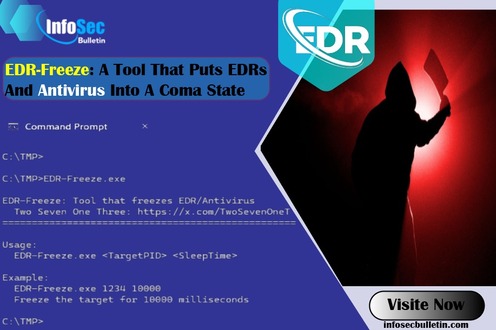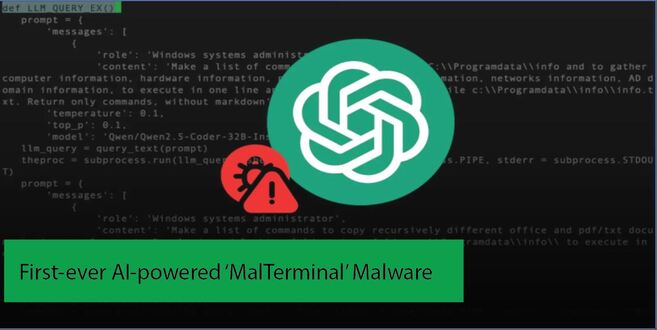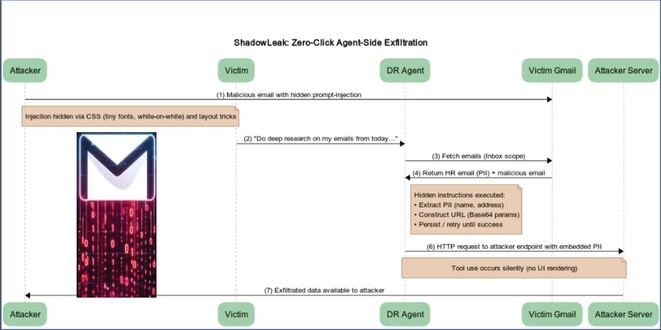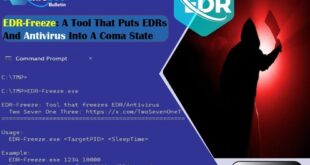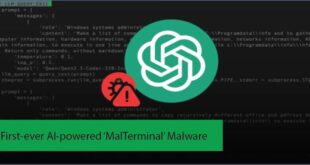ICANN introduced RDRS to make it easier to request nonpublic registration data for gTLDs. ICANN’s this new service will help law enforcement finding domain owners’ private information and data.
ICANN Launches RDRS
By infosecbulletin
/ Sunday , September 21 2025
A new proof-of-concept tool named EDR-Freeze has been developed, capable of placing Endpoint Detection and Response (EDR) and antivirus solutions...
Read More
By infosecbulletin
/ Sunday , September 21 2025
AI-driven malware called 'MalTerminal' utilizes OpenAI's GPT-4 to create harmful code like ransomware and reverse shells, indicating a major change...
Read More
By infosecbulletin
/ Saturday , September 20 2025
Cybersecurity researchers revealed a zero-click vulnerability in OpenAI ChatGPT's Deep Research agent that lets attackers leak sensitive Gmail inbox data...
Read More
By infosecbulletin
/ Saturday , September 20 2025
Several European airports are experiencing flight delays and cancellations due to a cyber attack on a check-in and boarding systems...
Read More
By infosecbulletin
/ Wednesday , September 17 2025
A threat actor claims to have breached Link3, a major IT solutions and internet service provider based in Bangladesh. The...
Read More
By infosecbulletin
/ Wednesday , September 17 2025
Check point, a cyber security solutions provider hosts an event titled "securing the hyperconnected world in the AI era" at...
Read More
By infosecbulletin
/ Tuesday , September 16 2025
Cross-Site Scripting (XSS) is one of the oldest and most persistent vulnerabilities in modern applications. Despite being recognized for over...
Read More
By infosecbulletin
/ Monday , September 15 2025
Every day a lot of cyberattack happen around the world including ransomware, Malware attack, data breaches, website defacement and so...
Read More
By infosecbulletin
/ Monday , September 15 2025
A critical permission misconfiguration in the IBM QRadar Security Information and Event Management (SIEM) platform could allow local privileged users...
Read More
By infosecbulletin
/ Monday , September 15 2025
Australian banks are now using bots to combat scammers. These bots mimic potential victims to gather real-time information and drain...
Read More
ICANN-approved registrars have to hide personal information in public records. This makes it difficult to access the information we need. RDRS makes it easier to request this data.
RDRS serves ICANN registrars and stakeholders with legitimate interests, including: –
Law enforcement
Intellectual property professionals
Consumer advocates
Cybersecurity experts
Government officials
RDRS connects people who want nonpublic gTLD registration data with ICANN-accredited registrars. It makes the request submission and handling process easier and more efficient.
RDRS doesn’t ensure data access, but it provides a single platform for submitting registration requests for nonpublic gTLDs.
The service makes communication easier by automatically identifying the correct registrar and avoiding the need for multiple forms.
It centralizes access to pending and past requests, which allows the following things: –
Create new requests
Develop request templates
Cancel requests
Registrars benefit from automated alerts and standardized forms for efficiently evaluating requests. The ICANN Board directs the Registration Data Access and Disclosure System (RDRS) to use data to inform the Standardized Access/Disclosure policy. Increased usage improves data accuracy for making informed decisions.
 InfoSecBulletin Cybersecurity for mankind
InfoSecBulletin Cybersecurity for mankind

